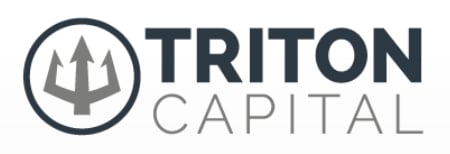What Is a Prepayment Penalty on a Business Loan?
Paying a prepayment penalty on your business loan may be worth it to save on interest or free up cash flow, but you’ll need to carefully consider your circumstances before deciding to pay off your loan early.
Many, or all, of the products featured on this page are from our advertising partners who compensate us when you take certain actions on our website or click to take an action on their website. However, this does not influence our evaluations. Our opinions are our own. Here is a list of our partners and here's how we make money.
On this page
Key takeaways
- A prepayment penalty is a fee a lender charges when you pay off a loan before its term ends.
- It is typically assessed as a percentage of the remaining balance of your loan.
- You may be able to avoid a prepayment penalty by negotiating with your lender.
Paying off your small-business loan early can help free up cash flow for your business, obtain financing for new purchases and save you money. But if your loan has a prepayment penalty, it’s important to run the numbers and consider what it would mean for your business before you commit.
How much do you need?
We'll start with a brief questionnaire to better understand the unique
needs of your business.
Once we uncover your personalized matches, our team will consult you
on the process moving forward.
Find the right loan for your business
Tell us how much you need and see your options in minutes.What is a prepayment penalty?
A prepayment penalty is a fee that lenders charge when you pay off your loan before its maturity date. In addition to business loans, they exist for mortgages, personal loans and auto loans. Depending on the lender, a prepayment penalty can kick in when you pay off the remaining balance of your loan early, or if you pay down a large portion of it ahead of schedule.
Why do lenders charge prepayment penalties?
Small-business lenders make money from interest charges on money they lend out. Your loan payments are amortized so you are paying interest until the day the loan matures, which means if you pay off your principal balance early, your lender will miss out on interest income it had originally counted on. In order to recover some of that loss or discourage borrowers from paying off their loan early, lenders may choose to charge a fee.
» MORE: Average business loan rates
How prepayment penalties work
There are a couple of components to a prepayment penalty that can ultimately determine how much you pay.
When it takes effect
Prepayment penalties may take effect at a certain date in your loan’s term, when you’ve paid down a specified amount of your balance — or a combination of both. For example, SBA 7(a) loans with a term of 15 years or longer have a prepayment penalty if you prepay 25% or more of your remaining balance within the first three years of your loan’s term.
How the fee is calculated
A lender may choose to calculate a prepayment fee in one of several ways:
- Percentage of remaining balance. For small-business loans, prepayment penalties are commonly structured as a percentage of the balance you are paying off. That means if you have a $100,000 remaining balance and a lender charges a 3% prepayment penalty, your fee will be $3,000.
- Cost of interest. A lender may also choose to charge the remaining amount of the total interest cost on the loan. In that case, you wouldn’t be saving money on interest by paying off your loan early, so you would have to weigh the other benefits of prepaying.
- Flat fee. Although it’s uncommon, lenders may charge a flat fee to pay off your loan early, no matter when you pay it off or how much your remaining balance is. A flat fee might be more beneficial for an earlier loan payoff.
- Scaled fee. Your fee may be adjusted depending on when in your loan’s term you pay the remaining balance — usually the earlier in the term, the higher the fee. Both SBA 7(a) and SBA 504 loans use scaled fee amounts, where the percentage of the balance you pay goes down the longer you wait to pay it off. For 7(a) loans, there is no penalty after three years, and for 504 loans, the penalty drops off after 10 years.
» MORE: SBA loan calculator
How much are prepayment penalties?
Exactly how much you are penalized for paying off your loan early will depend on your lender, the fee structure it uses and the amount of your loan. To give you a general idea, prepayment penalties typically range between 1% and 5% of your remaining balance.
Lenders are required to disclose if and when they charge prepayment penalties, and how much they charge. This information should be listed in your loan agreement; if you don’t see it, you can reach out to your lender and ask for clarity.
How to avoid paying a prepayment penalty
If you’re still shopping for a loan
The simplest way to avoid paying prepayment fees is to find a lender that does not charge them. There are several business lenders — most of them online lenders — that are upfront about not charging prepayment penalties. Keep in mind that higher rates and other fees can make these lenders more costly overall.
Best online lenders with no prepayment penalties
If you’ve decided on a lender, but haven’t signed documents
If you have your loan agreement, but you haven’t signed your closing documents yet, you may still be able to negotiate with your lender. You can explain your situation and how you’re planning to strategize an early payoff. This may mean removing the fee altogether, asking for a smaller penalty or negotiating when the fee kicks in.
If you already have a loan with a prepayment penalty
You may still be able to make additional payments and pay down your loan early without triggering a prepayment penalty. Read through your loan agreement carefully, or talk to your lender to make sure you understand exactly how much extra you can pay and when.
How to decide if you should pay your loan off early
Even with a prepayment penalty, there are circumstances where it may be worth it to pay off your loan early. Ask yourself the following questions to help you decide:
- Will I save more on interest than I’ll have to pay? Sometimes because of the fee structure, you may end up saving on interest even if you pay a penalty. Your loan statements should show your remaining balance, and you can use a business loan calculator to determine the interest you have left to pay. Keep in mind the interest you pay on business loans can also be tax deductible, so you’ll want to see how that factors into your long-term financials.
- Do I have other upcoming purchases? Clearing up as much old debt as possible can help you qualify for a new loan if you’re thinking about upcoming purchases to expand and grow your business.
- Will it free up cash flow? Refinancing, paying off or consolidating debt can free up cash flow that’s crucial to the daily operation of your business. In those cases, paying a penalty can be worth the additional cost.
Article sources
NerdWallet writers are subject matter authorities who use primary,
trustworthy sources to inform their work, including peer-reviewed
studies, government websites, academic research and interviews with
industry experts. All content is fact-checked for accuracy, timeliness
and relevance. You can learn more about NerdWallet's high
standards for journalism by reading our
editorial guidelines.
Related articles













